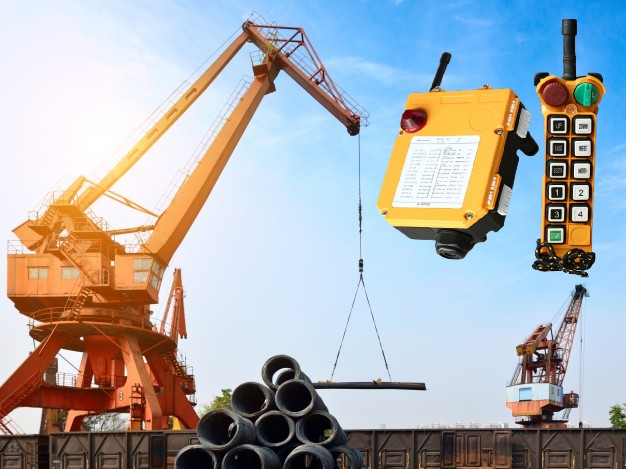Cranes operated by remote control systems are increasingly finding applications in various industries owing to their practical benefits. Be it auto manufacturing, chemicals, minerals, aerospace, paper and pulp, steel production, food industry, rail yards, shipyards, etc., a radio remote control helps perform varied tasks including lifting and lowering extremely heavy materials and transporting them to other places with ease.
The major difference between using a traditional crane and a radio remote control crane is that in the former, an operator sitting in the cabin operates the crane. The other person on the ground guides the operator by waving his hands and directing the operator to move the crane to appropriate place.
However, today the technology is advanced to the point where industrial cranes can be maneuvered using wireless remote control systems. In this article, we look at five important benefits of using radio remote controls in cranes:
- Improved Safety
Safety is undoubtedly the major benefit here. Since there is no need for a person to be physically present near the crane and its operation, the risk of him being struck by either the crane or its load is eliminated. What’s more, with wireless radio remote controls there is also no need for an operator to be present inside a crane cab. Hence, the risk of him being injured is also ruled out.
- Reduced manpower
In the case of remote controlled cranes, just one person does the job of rigging and guiding, which reduces the time, effort, and the need for more labor to perform the job. Supervisors thus can allocate the manpower to perform other pressing tasks.
- Better visibility
With an industrial radio remote control, the operator enjoys better visibility and gets an unobstructed view of the crane and load. He doesn’t have to worry about the cables being tangled, or the pendant controls, making the job easier and error-free,
- Enhanced control
Radio remote controls offer operators the flexibility to get closer or further away from the crane. This is particularly important when job precision becomes a crucial factor such as when maneuvering a load through tight spaces.
- Portability
The operator can carry wireless radio remote controls unit wherever it is needed or can even harness it onto a belt with ease for control of the crane.
